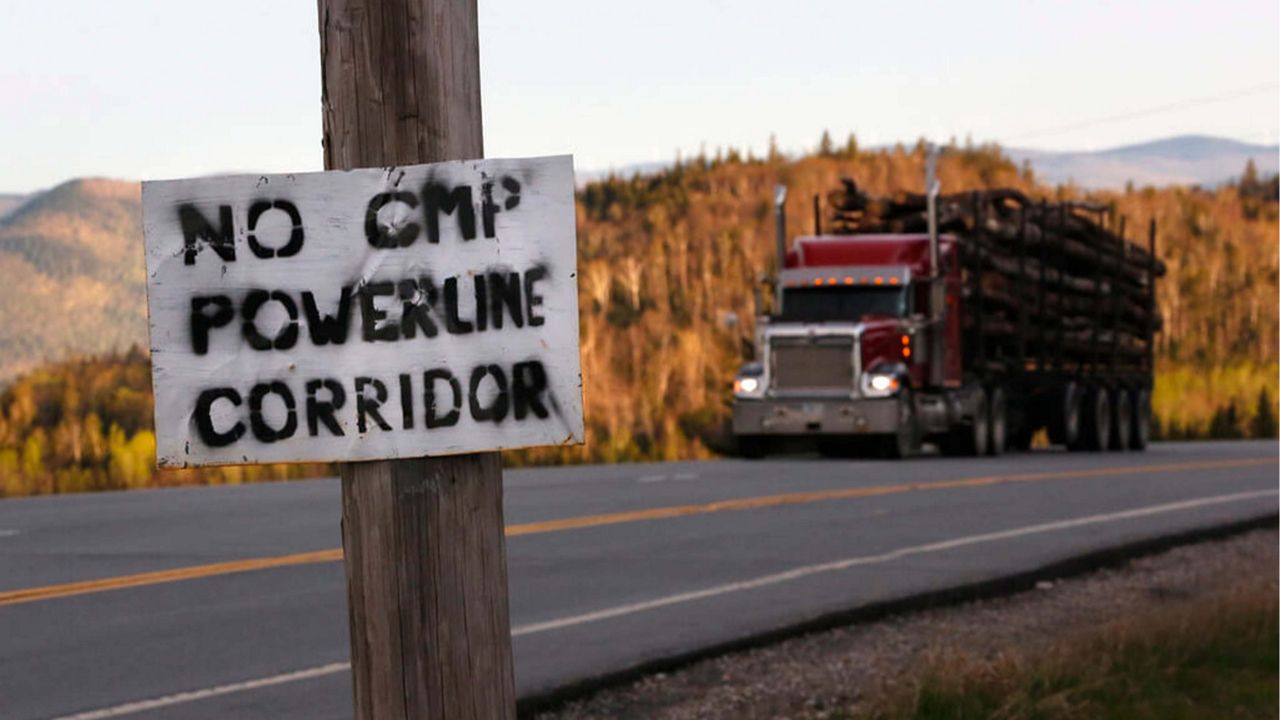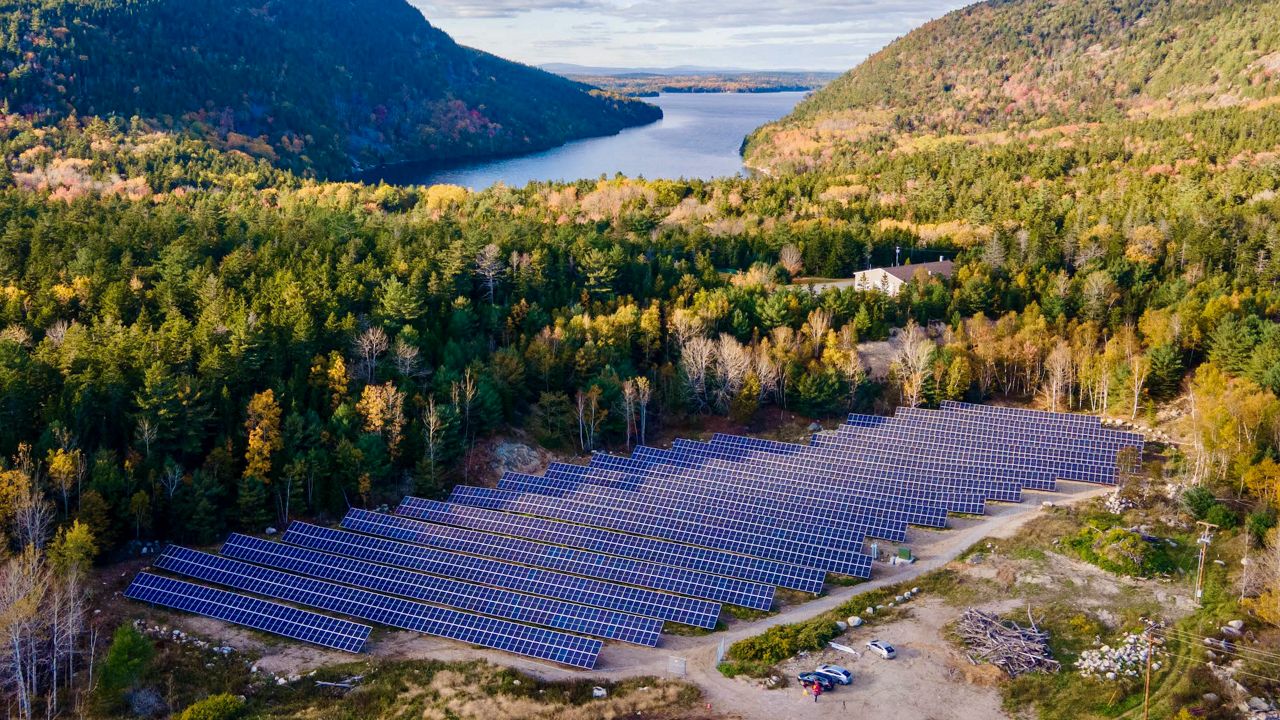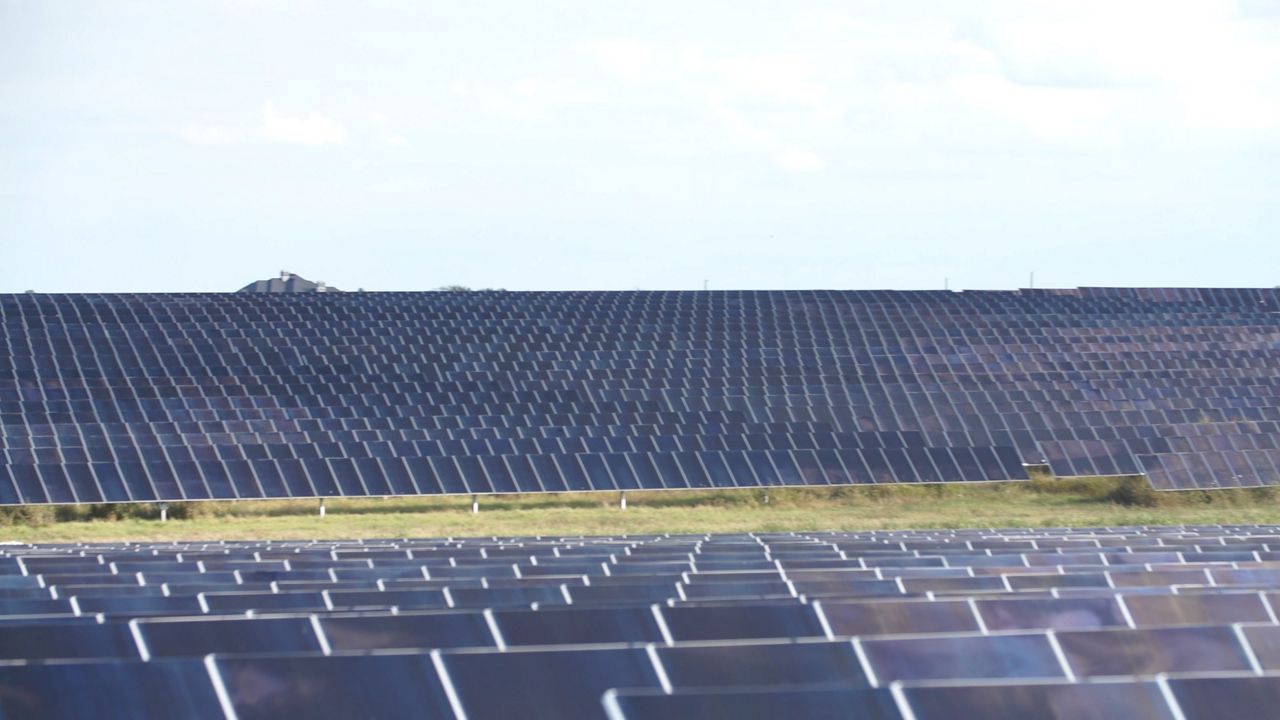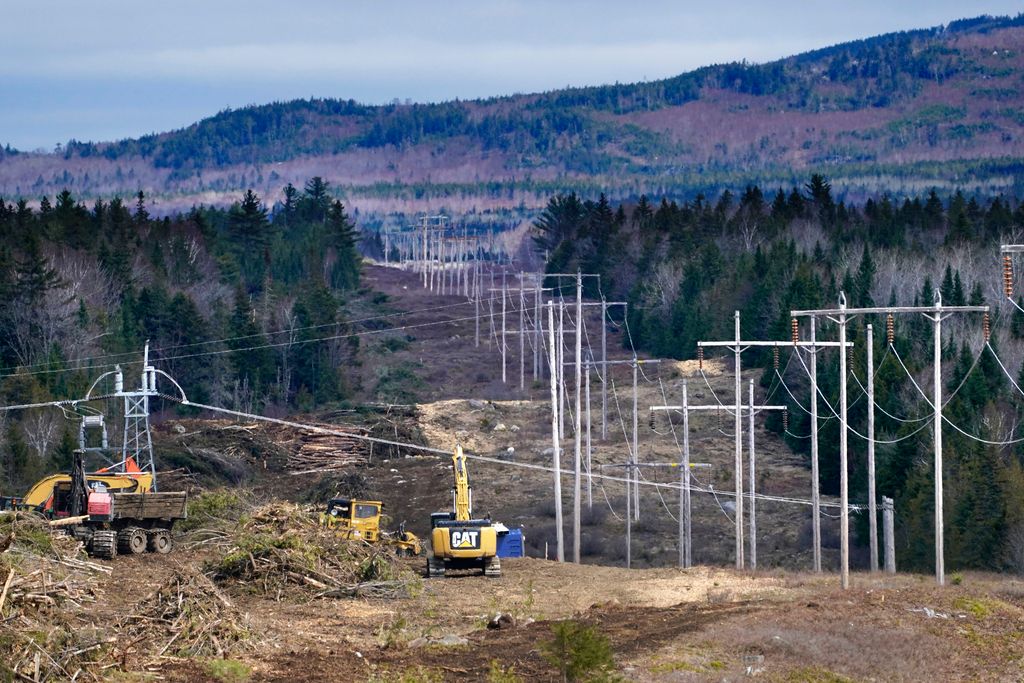Maine’s Supreme Court is set to take up questions about whether to uphold a law enacted by voters late last year that seeks to block Central Maine Power’s controversial Western Maine transmission line project.
Late last week, the state’s Business and Consumer Court granted CMP’s request to refer legal questions in the case to the Supreme Court.
The lower court denied the utility’s motion to temporarily block the referendum earlier last month, but said many questions of law that CMP raised in its suit were unsettled. Under Maine law, this means the plaintiff in the case can ask for the Supreme Court to weigh in.
Now, the high court will take briefs from CMP owner Avangrid and the LLC that represents the transmission line, known as New England Clean Energy Connect or NECEC, followed by filings from the state agencies that are the defendants in the case. An oral argument likely won’t happen until spring, at the earliest.
The state Supreme Court is also still working on a separate, but related case, disputing the public lands lease Maine gave CMP for about one mile of the transmission line’s route. That lease is now suspended, as is construction on the project, as these cases proceed.
The referendum, if it stands, would ban transmission lines like CMP’s from the Upper Kennebec region and would require more legislative approval for similar projects going forward.
CMP has argued, among other things, that it has a vested right to continue the project at this late stage in development. Whether that right has actually kicked in is one of several questions that the developer and the lower court say the Supreme Court’s justices should decide.









